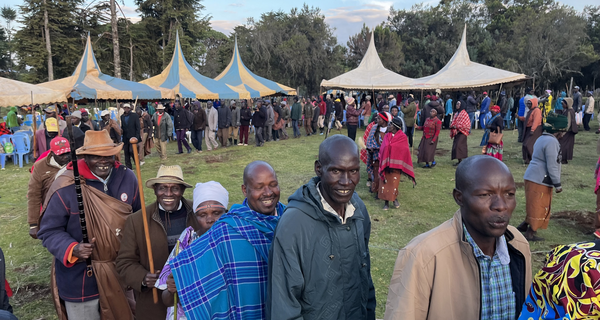
‘Still struggling with the commons’ An Overview of Progress & Problems Securing Community Lands in Africa
Customary land tenure is a global regime practised in most agrarian economies by Indigenous Peoples, Afro-Descendant Peoples, and land and resource dependent Local Communities. Land possession and its governance are community-based, with norms upheld by majority consensus. These rules or ‘laws’ adapt over time to meet changing land uses and member demands. This keeps the system vibrant, locally owned and relevant for millions of land dependents in Africa and beyond.
Over three-quarters of the African continent is customary land, that is, lands possessed, occupied, and used over generations under community rules (‘customary law’). National law reforms acknowledging these domains as lawfully owned community properties have been expanding across Africa since the 1990s. Findings are summarised here, pending publication of detailed analyses.
Key Points
- Legal change across Africa recognizing communities as legal owner-managers of their customary domains is sufficiently widespread to suggest this trend cannot be easily halted or reversed.
- The transformation is incomplete. The most egregious shortfall is where governments retain the shared common lands of communities as government land.
- Family houses and farms within the community domain are significantly more secure than common lands.
- Community land title has become the flagship construct for customary land security – and the most challenging for governments to structure as not just another version of alienable private property.
- Double-locking land and resources in registered deeds has become essential to help protect communities from unjust land takings.
- Expanding mapping and data confirm the major role of community lands in Africa: 80% of the rural population manage 80% of the continental land area of which 80% are resource commons not settlements or farms. Protecting and restoring communities (80/80/80) connection with their lands can sustain cultural and biological diversity in a way that more imposed state-protected areas (30% of land by 2030) by evicting communities cannot.
This paper is number 8 of the briefing series Transforming Conservation: from conflict to justice.
Overview
- Resource Type:
- Briefing Papers
- Publication date:
- 26 September 2025
- Region:
- Cameroon Democratic Republic of Congo (DRC) Kenya Liberia Madagascar Republic of Congo Uganda
- Programmes:
- Territorial Governance Conservation and Human Rights


